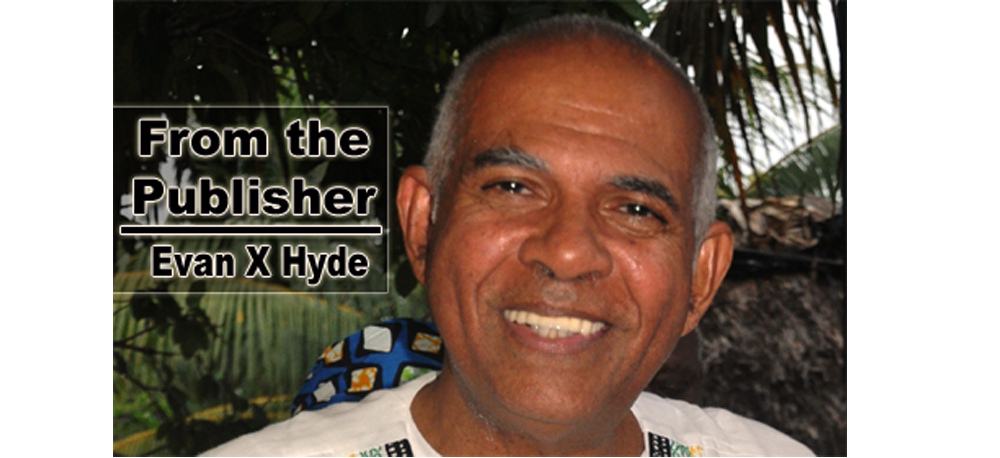A little over two weeks ago, a Belizean soldier was shot (in the buttocks) somewhere near the Belizean border with Guatemala. From the beginning, the story was severely “low-keyed” by the local authorities. It was said that they had to do extensive forensics on the slug, which was still lodged in the Belizean soldier’s body, to determine who did the shooting, the relevant question for the Belizean populace being, whether the shooter was Belizean or Guatemalan. It was said that the forensics would take time. An official silence on the matter has set in.
A vaguely similar incident occurred about six or seven years ago. A Belizean guard at the Caracol tourist site in the Chiquibul, a young man named Danny Conorquie, was shot and killed by several men. There was some video footage of the incident. It was reported that just previous to Conorquie’s murder, Belizean soldiers had confiscated a horse belonging to Guatemalans from across the border.
A United Democratic Party (UDP) government was in power, and the UDP Foreign Minister told the media that it was not known whether Guatemalans had killed Danny Conorquie. But most Belizeans, I think, thought that that was the case. The Foreign Minister’s was the official take on the matter, and the UDP administration tried to have the story die a natural death. “Wahn lee breeze …”
Kremandala, for its part, struggled to keep the story alive. Danny Conorquie was shot late one September, and every year we would go over the incident via our media outlets. Conorquie’s Georgeville (Cayo) family appreciated our efforts. But in 2022 no one ever mentions Danny Conorquie.
It is said that the population of Guatemala is fifteen to seventeen million. Belize’s is perhaps 400,000. Guatemala’s military forces are much more powerful than Belize’s. If there were a straight-up war, it would be no contest. But it should be noted that Guatemala remains a very divided country: there was a bloody civil war there from 1960 to 1996. So a war between Guatemala and Belize would not be a “straight up” war, if you understand what I’m trying to say.
Before I proceed, let me say this. I have the world of respect and admiration for Wil Maheia and all those Belizeans who have travelled to the Sarstoon along with him over the years. The Guatemalans they have to face down in the Sarstoon are armed with modern automatic rifles. The Belizeans are unarmed. As a gambler, I do not like the odds.
Now we have gone over some of the history of our country in this column over the years. Some relevant points include the 1823 declaration of the Monroe Doctrine by the United States government, and the 1859 border treaty between Great Britain and Guatemala, which I have described as “godfathered” by the United States. In effect, the U.S. was “tolerating” Britain’s ownership of Belize.
Around the 1930s, when Hitler was becoming a threat to Britain, a Guatemalan government, headed by Jorge Ubico I believe, began to renounce the 1859 treaty as bogus, and ever since then there has been increased tension, threatening flareups even, on the border between Guatemala and British Honduras/Belize.
General Ydigoras Fuentes, who was president of Guatemala from 1958 to 1963, claimed that the United States government led by President John Kennedy had promised to support Guatemala’s claim to Belize in return for Guatemala’s allowing a coffee plantation in Guatemala to be used as a training ground for the invasion of Fidel Castro’s Cuba by Cuban exiles, an invasion which took place in April of 1961.
In Puerto Rico the following year (1962), the United States hosted a meeting between representatives of Great Britain and Guatemala to discuss the Guatemalan claim to Belize. Belizeans were invited only as observers, and only from the ruling People’s United Party (PUP), none from the Opposition National Independence Party (NIP), led at the time by Hon. Philip Goldson.
The Belizeans present at the Puerto Rico conference were Rt. Hon. George Price, Hon. Albert Cattouse, Hon. Louis Sylvestre, and House Speaker, Sir W. H. Courtenay. The Englishman present from the British Honduras colonial office was one Michael Porcher.
That 1962 conference is never mentioned in the Belizean media. Never. Was it organized by the Americans to placate Ydigoras for his training facilities agreement? Please remember that when Fuentes allowed Guatemala to be used against Cuba, it sparked a nationalistic rebellion in the Guatemalan army in late 1960, a rebellion which some scholars consider the beginning of the civil war I mentioned before, from 1960 to 1996.
Belize was granted self-government by the British in 1964, and the Americans promoted another conference in 1966 between the British and the Guatemalans, with an American attorney mediator named Bethuel Webster, to prepare proposals for a settlement to the claim which would allow Belize to proceed to independence. The difference between that and the 1962 Puerto Rico conference was that the Opposition NIP was invited, in the person of Hon. Philip Goldson. Although sworn to secrecy, Goldson was so alarmed by Webster’s proposals that he revealed them to the Belizean people, who revolted in the population center.
What is the point of all this? The point is that the United States of
America has a substantial interest in preserving the peace between Guatemala and Belize. This is no longer Britain’s baby. The Guatemalan claim to Belize is now Washington’s child. So there is American-derived pressure on Belize’s authorities, whether they be PUP or UDP, to “low-key” any kind of insult or incursion from the Guatemalans. This is because the geo-political reality of Belize’s situation is tricky, precarious. That is why we have amnesty, extended amnesty, and so on and so forth.
This here is big people business. Oil business too. I used to think, as a young man, that I was moving up from “British subject” to Belizean manhood. I don’t know anything any more.

